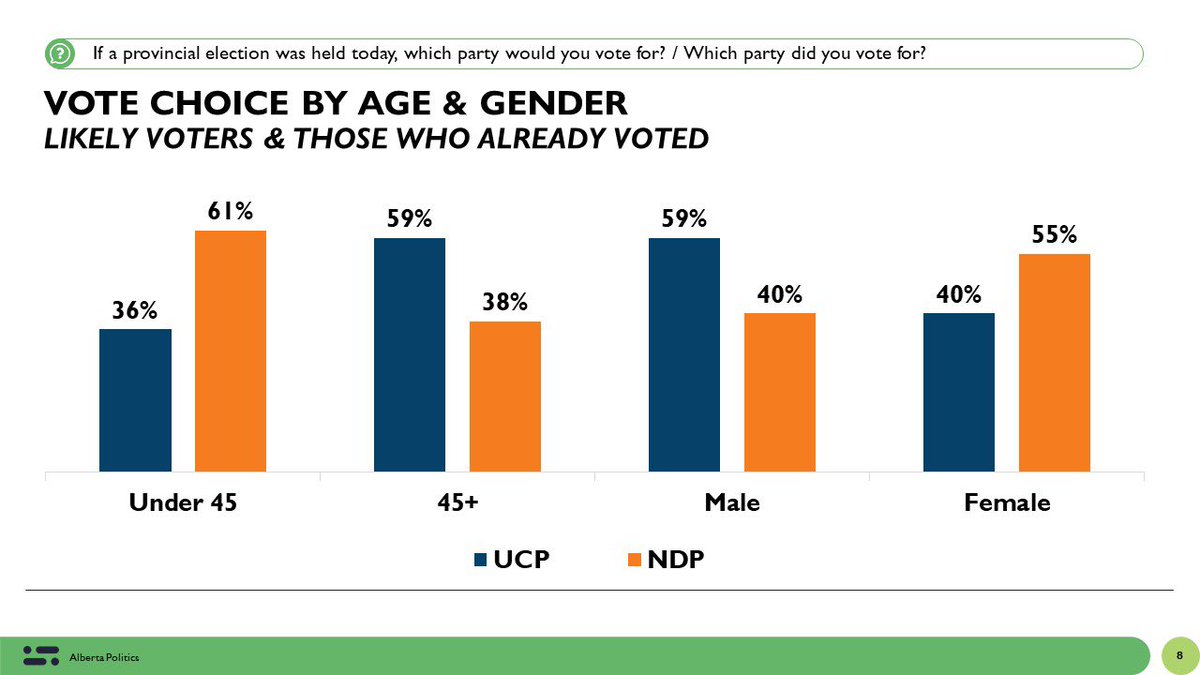Final thoughts on our @abacusdataca polling for #ableg #abvotes #abpoli:
The NDP had to do something very difficult in this election. It had to convince a lot of Albertans to vote NDP for the first time in their lives. They had to get them to go against their identities and… twitter.com/i/web/status/1…
The NDP had to do something very difficult in this election. It had to convince a lot of Albertans to vote NDP for the first time in their lives. They had to get them to go against their identities and… twitter.com/i/web/status/1…
Coming into this election, Danielle Smith was very much the focus of people’s attention. Her favourables were lower than Rachel Notley’s. Many past UCP voters were repelled by her, thought she was worse than Jason Kenney as Premier, and felt she was a risky prospect. It looked… twitter.com/i/web/status/1…
In the end, the structural advantages of a united conservative electorate t in Alberta meant the UCP was always the favourites to win the election. The NDP needed to center the election around healthcare, convince voters they had economic credibility, and persuade individuals… twitter.com/i/web/status/1… 

Ultimately, it appears the NDP was unable to convince enough Albertans that the UCP and Smith were too risky and that Notley and the NDP were a safe alternative. To defeat an incumbent, especially in a province like Alberta, requires both those conditions to be met.
Danielle Smith will likely continue as Premier after tomorrow’s election. How long she can stay in the role remains to be seen. But her campaign closed stronger than it started with a solid debate performance and a closing week without much controversy.
Does this mean Alberta is now solidly a two-party system? I think so. Will it always be naturally competitive? Maybe not. Depends on many variables.
But whether or not the result tomorrow night is as I expect (and we still could be surprised), there will be a lot of lessons for political managers to unpack in the days and weeks ahead.
Alberta will come out of this election quite divided along regional, demographic, and cultural lines. This election exposed some big cleavages with old, traditional Alberta one on side and a newer, contemporary Alberta on the other. Younger and newer Albertans are strongly… twitter.com/i/web/status/1… 

Tomorrow we are likely to see Danielle Smith and the UCP re-elected but the results of the survey suggest we could be surprised. Some will think I’m hedging my bets but any conclusion otherwise would be foolish given how close things are and the variables that could tilt things… twitter.com/i/web/status/1…
• • •
Missing some Tweet in this thread? You can try to
force a refresh

 Read on Twitter
Read on Twitter














